#dinphil
Explore tagged Tumblr posts
Photo
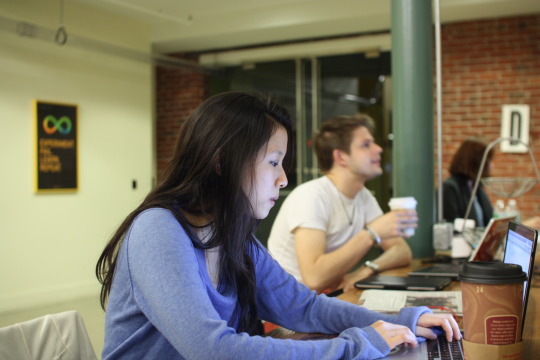
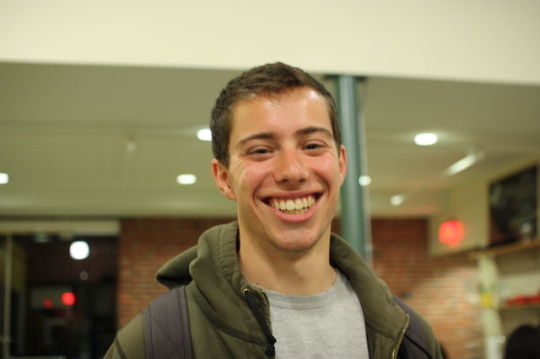
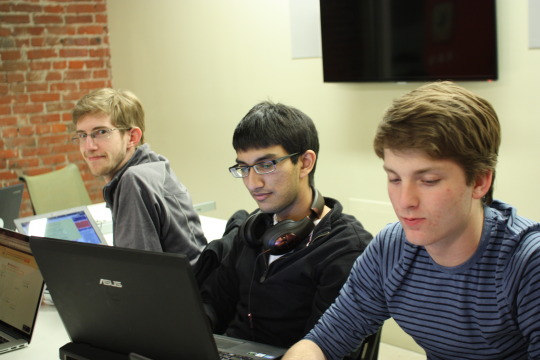
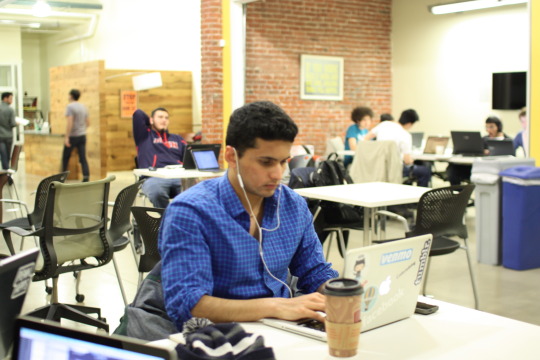
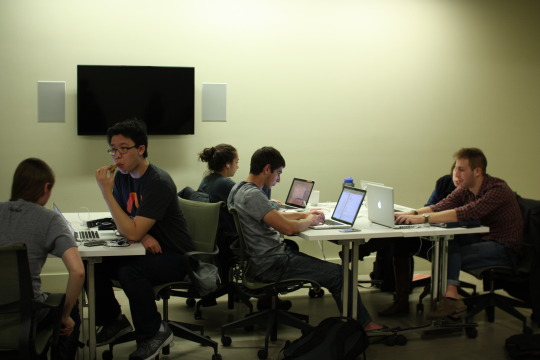
Code@Night -- April 16, 2014
Last Code@Night of the year -- we'll miss you, but see you in the fall!
0 notes
Photo


Every semester we get donuts and hot chocolate for a few of the bigger CIS classes (in an attempt to maximize the number of people we hit) so they can get a pick-me-up right after their final. Pretty delicious tradition, right?
0 notes
Photo
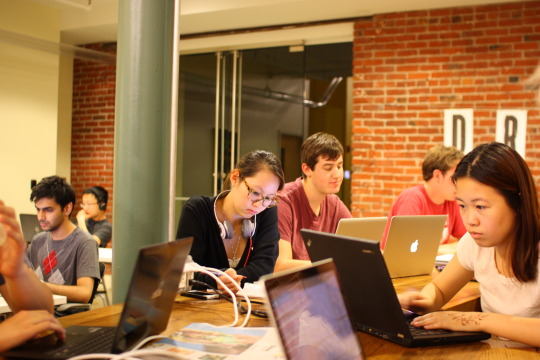
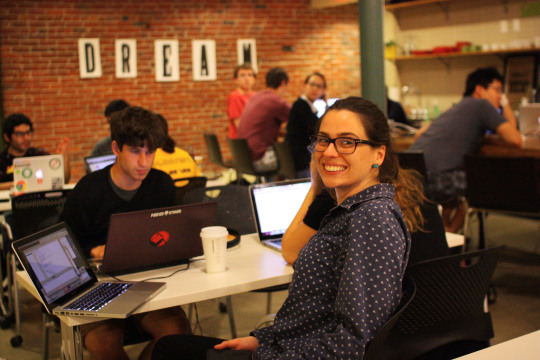
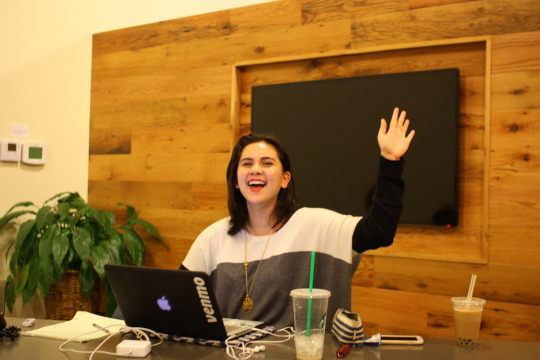
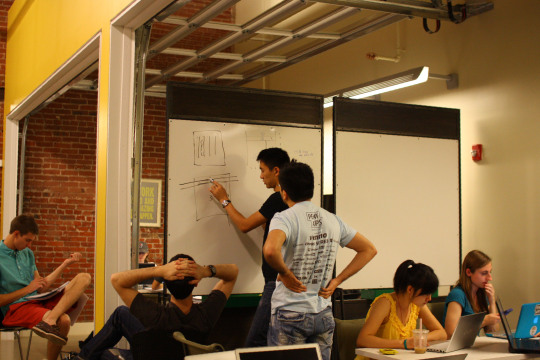
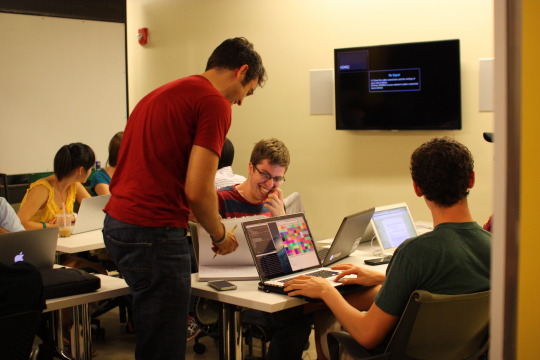
Code@Night -- Oct 2, 2014
2nd Code@Night of the year, and we're sort of loving it. Thanks to FRC for being so generous with their space!
#code@night#cis@penn#social-committee#dinphil#dining-philosophers#penn#firstroundcapital#first round capital
0 notes
Photo
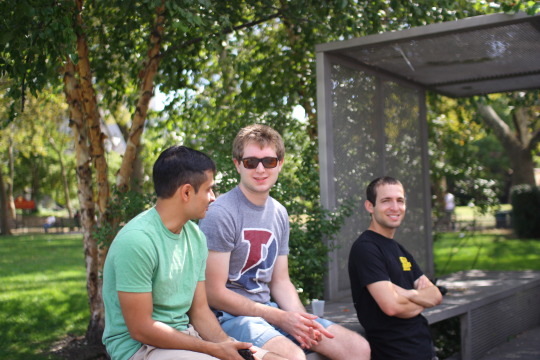
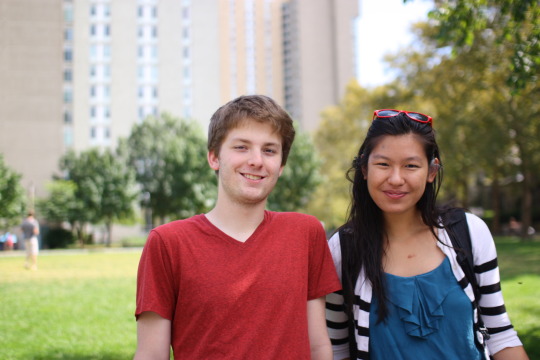
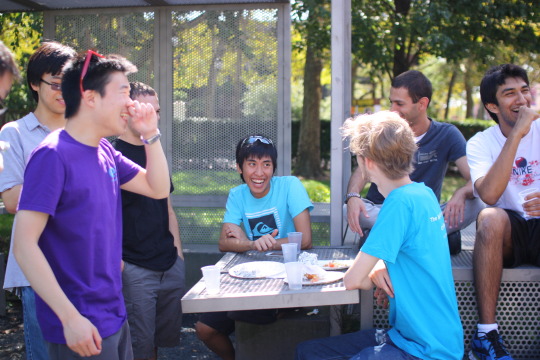
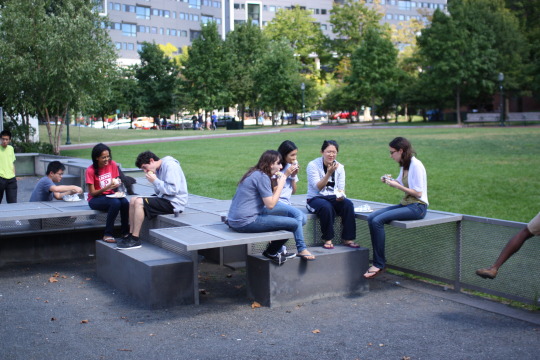
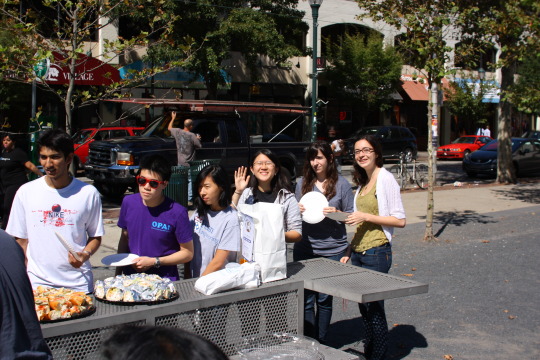
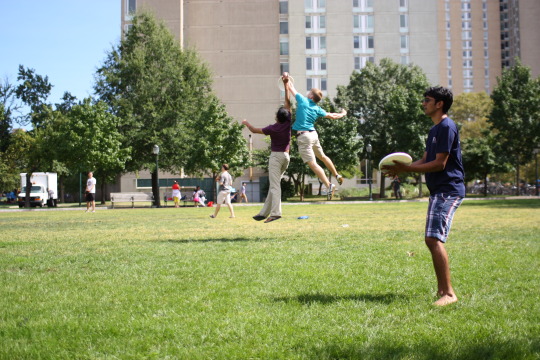
CIS Picnic -- Sept 21, 2013
Back to school and sunny weather means our annual CIS Picnic. :)
0 notes
Photo
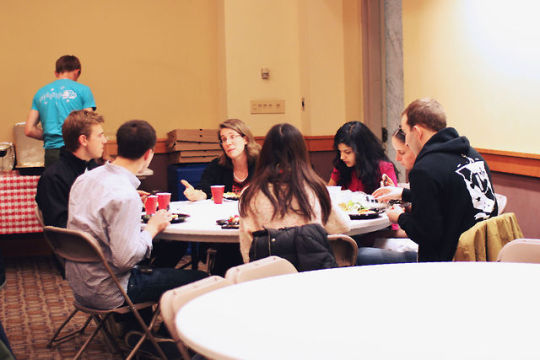
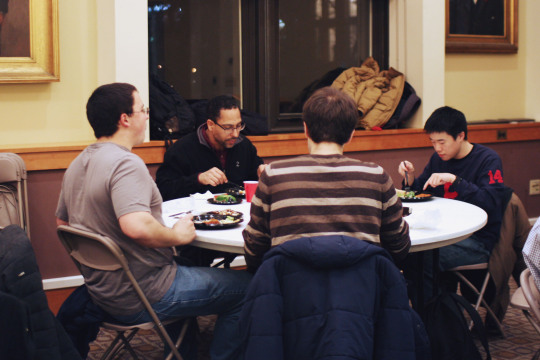
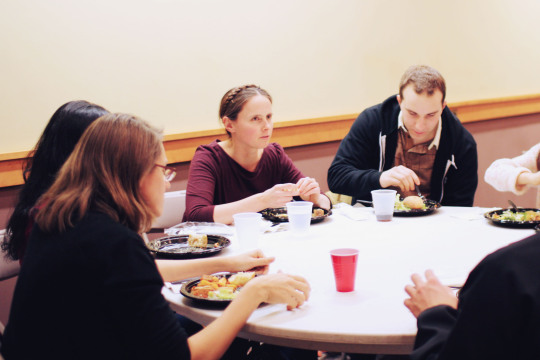
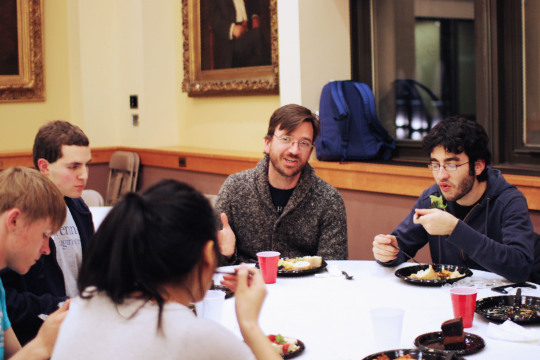
February 2014 -- Faculty Dinner
Professors pictured: Stephanie Weirich, CJ Taylor, Nadia Heninger, Chris Callison-Burch
We think that student + faculty interaction benefits everyone involved, and we definitely don't think it happens enough -- and we think that the faculty here at Penn probably feel the same.
To remedy that, we've been running recurring Faculty Dinners for a couple years now. We invite a few different faculty every month, cater some delicious food (only the best for our professors!), and sit down 20 or so undergrads at dinner with them. Conversations ranges over the research they do, "why teaching? why research?", what's good & bad about computer science education as-is, and how to improve it, etc.
Sometimes we get students signing up to eat dinner with their current professor, or we get students who've never taken a class with any of the professors. Either way, it's a recurring event that we hope becomes a tradition.
0 notes
Text
The DinPhil Mentoring Program
This post comes to you courtesy of Dhruv Maheshwari, a Penn junior in M&T CS. He's been a mentee in our hacking mentorship program this semester, and wanted to share about his experience.
I signed up in September, and soon afterwards my mentor (Man Boy Genius Rafe Kettler) began teaching me about databases, flask, python, git. It was incredibly immersive – just being in Moore 100 and listening to the debates he had with other CS people about the complexity of python data structures pushed me to think about CS in a way that I personally never did. And it was iterative – since we were pair programming, he could give me tips on my technique as well as how to get something to actually work. After 4 of these sessions, I was able to get a twitter clone up and running on my local host (I have a pretty awesome mentor).
This gave me the foundation, but I only really felt like I had actually learned this stuff when I attempted to make a new web app – one that texted you as soon as a Penn-in-Touch course opened up (shameless plug, check out PennCourseMonkey). I realized quickly that setting up small goals – ie. get a database running or input/read into the database or set up a Twilio API or figure out jinja templating – helped me drive the project/learning forward. For each small hurdle, I google’d, stackoverflowed, or just messaged people who were smarter than me, until our app was up. I wouldn’t say I’m super good at coding now – but accomplishing something like this definitely gave me the excitement and confidence to keep going.
So my advice to anyone interested in building a web app: find mentors that can provide you a road map or building blocks to where you want to go. Once you feel like you’ve gotten your hands wet, start building and iterate often. And share your work! Everyone will be so excited to see it.
1 note
·
View note
Text
Dan Getelman
The DP is starting to do profiles of students at Penn involved with tech, hacking, computer science, entrepreneurship, and so on! This is our first one, so if you're interested in being featured or want to see someone featured, email dinphil [at] gmail and let us know!
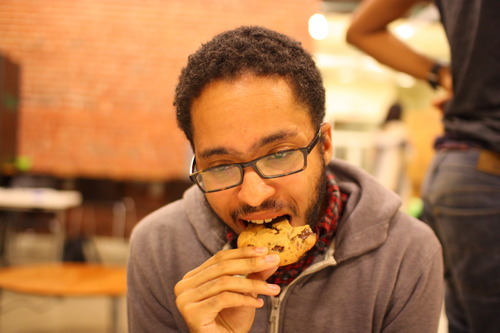
DP: Tell me about yourself!
Dan: I was originally class of 2012, but I left after my junior year to start Lore (formerly Coursekit). Now I'm back at Penn, and I'm graduating in December.
DP: How did you get into programming & computer science when you were younger? I imagine you've been programming for a while now...
Dan: I was about to come up with some ridiculous story that wasn't true, but I couldn't think of one, so I'll give you the real story. I had always liked playing sports video games; I liked them because they were really short, so I didn't give up on them as I got older. When I was in 5th grade, Triple Play 2002 came out. I thought, "I can do something better than this." I don't know why I thought I could, but I did. So I went online and searched, "How can I make a video game?" Someone on a forum said "go learn c++." So I got this book, worked through it page by page, got to the end, and realized that I still had no idea how to make video games.
DP: So how did you get from just learning how to program to now?
Dan: After that, I did programming on and off through high school. I made websites for friends, tried to make some text-based games, and took AP computer science. I decided there was no way I was going to be a computer scientist, which turned out to be obviously wrong. I came into M&T undecided as an MSE major, decided that I hated chemistry, and ended up in CS since I really liked 120.
DP: How did you wind up starting Lore?
Dan: The summer after sophomore year, I started working with Joe Cohen (Lore co-founder) on the first version of Coursekit. It was originally a site to help teachers turn their syllabi into an interactive website, which is kind of similar to what it ended up being, but with a different focus. Coursekit was essentially inspired by two things. The first was that existing software that students use for school is really frustrating, like Blackboard. The second was that there was so much unrealized opportunity to use technology to make classrooms better. We spent all summer on that more or less, and came back in the fall and tried to get people to use it at Penn. Teachers were interested, but no one committed to using it.
DP: So what changed to make Coursekit successful?
Dan: We started focusing on the social part of the class. If you look at why classes exist in the first place, it's to learn from other people -- from your teacher, from other students. We made that version of Coursekit in Spring 2011 and got a few classes at Penn to use it. Teachers were really interested then, and that was the point where we saw that it was actually adding value to a class. Sharka Hyland (FNAR Professor) would have people post typography in the wild, and it enabled so much more engagement in the class between students.
After that semester, we left school to work on it full time. Shortly after that, we raised a million dollars from angel investors.
DP: The difference between two years at a startup and two years in school?
Dan: It was a tremendous learning experience. Nothing you do in class really prepares you for doing stuff in the real world, so that's cool. I was also still able to be involved with Penn CIS. We hired interns from Penn and sponsored PennApps, so it was good to still be connected.
DP: What are you up to now that you're back at Penn? Any plans for life after graduation?
Dan: A big piece of why I left [Lore] was that I really enjoy school and classes and being able to learn things. That means I'm enjoying being a student and not doing anything else right now. In January, I'm doing Code for America for the next year. I'll get partnered with a local government, and I'll be given the loose guidelines of a problem they want to solve.
DP: This is probably the worst interview question... but I have to ask it. Any advice to any students out there interested in entrepreneurship, hacking, etc?
Dan: That is the worst question. Probably the most important thing is to take time -- specifically set aside time to work on something outside of class. It doesn't have to be a startup, but has to take time. For me, it was working with the Daily Pennsylvanian website freshman year. It forced me to learn a lot in a really short period of time that I wouldn't have gotten out of class. Also, take advantage of the fact that you're surrounded by and working with people that have the same interests as you.
4 notes
·
View notes